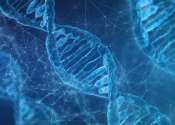Researchers solve structure of immune-evading HIV protein complex
The HIV-1 virus can neutralize cellular defenses with its viral infectivity factor (Vif). OIST researchers Prof. Matthias Wolf and Dr. Takahide Kouno together with an international team of colleagues have now determined the ...
Jul 14, 2023
0
10









